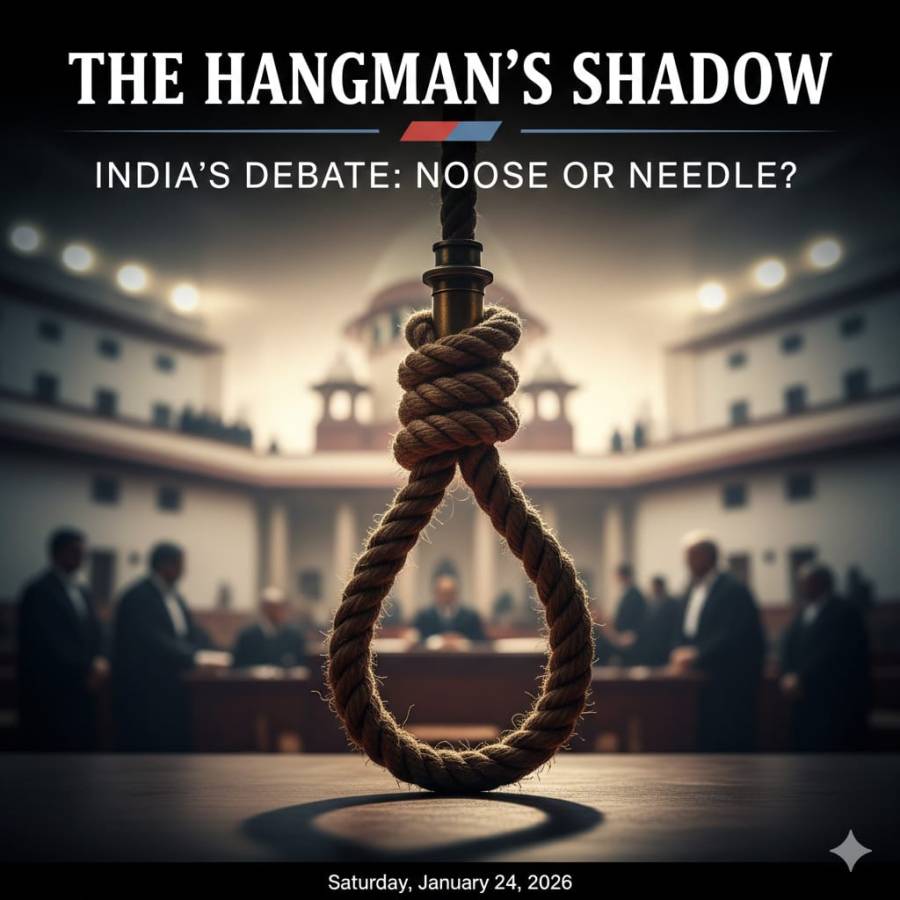
In a country where academic excellence is treated almost like a divine pursuit, coaching institutes have become modern-day temples of learning. But in recent years, these very institutions have also turned into pressure cookers, pushing students to breaking points. The state of Rajasthan, known for its bustling coaching hubs like Kota, has been grappling with a heartbreaking rise in student suicides. To address this crisis, the Rajasthan government has tabled the Rajasthan Coaching Centres (Control and Regulation) Bill, 2025.
At first glance, this move appears to be a much-needed intervention, but does it genuinely promise a safer environment for students, or is it just another bureaucratic exercise?
Over the past two decades, Rajasthan, particularly Kota, has become synonymous with India’s coaching culture. Every year, thousands of students flock to the city with dreams of cracking exams like JEE and NEET. However, the same place that nurtures ambition has also witnessed despair. In 2024 alone, at least 28 students allegedly took their own lives in Kota—a stark reminder of the immense pressure these young minds endure. The primary culprits? Unrealistic expectations, relentless competition, and a system that often prioritizes results over well-being. Many coaching centres operate purely as profit-driven enterprises, with little concern for the mental health of students. Until now, there has been no strict mechanism to monitor their functioning. The new bill aims to change that.
The Rajasthan Coaching Centres (Control and Regulation) Bill, 2025 introduces stringent measures to regulate coaching centres. It makes registration mandatory, requiring all coaching institutes to register with the state’s higher education department. This step ensures that only authorized institutions operate, bringing a layer of accountability to an industry that has long functioned with minimal oversight. Additionally, the bill proposes a two-tier regulatory system. A state-level authority will oversee compliance and policy implementation, while a district-level authority will inspect and regulate local coaching centres. This hierarchical approach aims to ensure that regulations are enforced at the grassroots level.
To deter malpractices, the bill includes stringent penalties for violations. Coaching institutes that fail to comply with regulations could face fines of up to ₹25 lakh and even cancellation of their registration. The financial and operational consequences of non-compliance are meant to discourage unethical practices. While the bill does not explicitly mandate psychological counseling, it indirectly promotes student welfare by discouraging coercive teaching methods and enforcing a structured framework.
While the bill sounds promising, its effectiveness depends entirely on implementation. One of the biggest challenges is balancing education with commercialization. Many coaching centres have turned into profit-making machines, prioritizing enrollments over actual learning. Ensuring that these institutions do not exploit loopholes to continue operating primarily as businesses will be a crucial test for the government. Another pressing concern is the lack of a clear mandate on mental health support. Though the bill acknowledges student distress, it does not strongly enforce measures like mandatory counseling sessions. Without structured emotional support, students may continue to experience the same overwhelming pressure that has plagued the system for years.
Execution at the ground level is another critical hurdle. India has no shortage of well-intentioned laws, but their implementation is often inconsistent. The real test will be whether district-level authorities have the necessary resources and commitment to monitor thousands of coaching centres effectively. Moreover, ensuring that the regulatory process remains transparent and free from corruption will be essential. The resistance from coaching giants could also pose a significant challenge. Large coaching brands with deep pockets may try to influence policy decisions or exploit legal gaps to minimize the impact of regulations on their businesses. If enforcement is weak, the bill may end up being just another piece of legislation with little real impact.
While regulation is necessary, perhaps a deeper question needs to be addressed—should India rethink its coaching culture altogether? The obsession with cracking competitive exams has led to a system where coaching centres thrive, not because they are a choice, but because they are a necessity. If schools provided quality education and holistic learning, students wouldn’t need to rely so heavily on external coaching. Encouraging alternative career paths and redefining success beyond just academic achievements could also help reduce the pressure on students. Additionally, integrating life skills education, such as emotional resilience and stress management, into school and coaching curricula could provide students with the tools to navigate academic pressure more effectively.
The Rajasthan government’s new bill is a welcome move, but it is not a silver bullet. Real change will come only if it is enforced with transparency and complemented by a broader shift in how education is approached in India. The crisis in coaching centres is not just about regulations—it is about reshaping an entire ecosystem that prioritizes mental well-being over mere academic scores. The future of millions of students depends not just on laws but on how society redefines success. Let’s hope this bill is the beginning of that transformation.





















